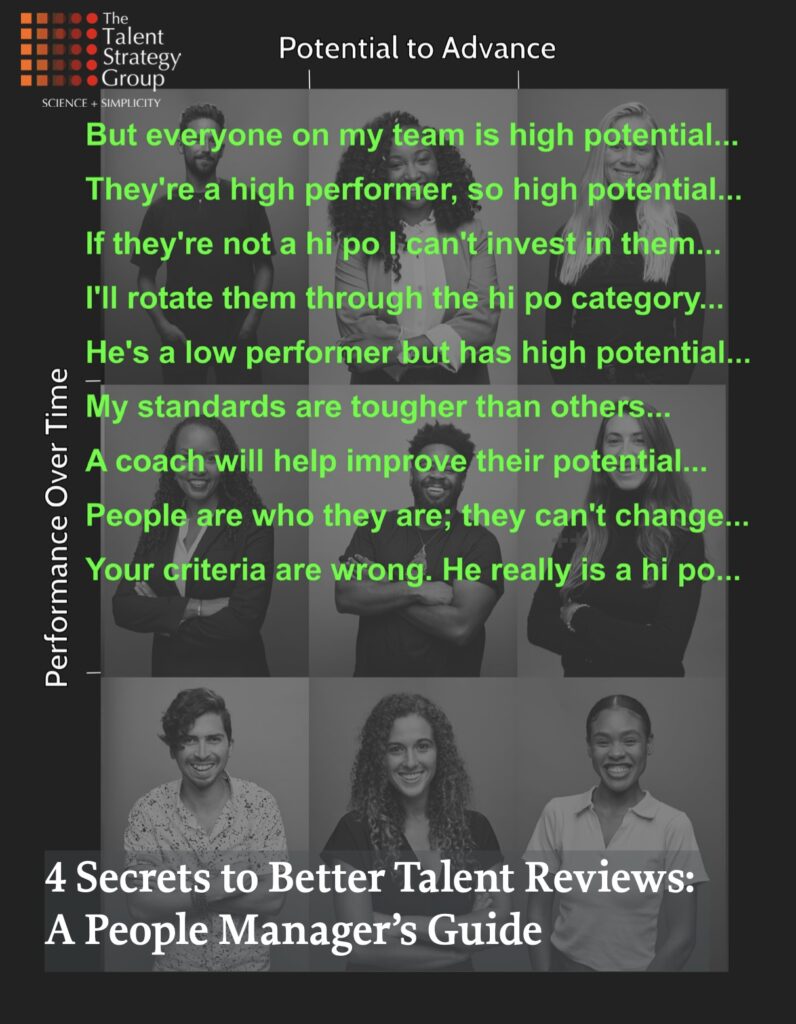Please enter your email in order to download this publication.
(and how to fake it)
At least once a month, I show a decidedly fake version of myself to very important people who have paid handsomely for my services.
The fake me may show up in a client meeting, an executive education session or during an important speech. My clients don’t know that it’s the fake me and they don’t care. They simply want a great outcome for their organization.
I’m proud to show others the fake me when I know that my “authentic” behaviors aren’t the best ones for a given situation. As an introvert, I’m hard-wired not to be especially social or gregarious. This is a serious liability in client interactions or at conferences or education events where it’s critical to effectively connect with others.
As someone with a dangerously high tendency to be skeptical, my natural behavior is to question or pick-apart other’s reasoning. That quality may be an asset in a political debate or courtroom but is likely to be off-putting or offensive in many other interactions.
My “authentic” or “genuine” tendencies could create poor outcomes in many important work situations. So, I fake it instead.
In case you interpret the word “fake” as meaning to slightly change a behavior or “stretch” your style, think again. When you fake a behavior, you engage in a behavior that’s fundamentally different than your natural tendency in order to achieve a superior result.
In some cases, you’re working against your core personality towards a behavior that you know is preferable. At other times, you are engaging in a behavior that you don’t trust is the right one but have been told that it’s the most effective one for the situation.
How do I show the fake me? During an important speech, I might adopt the personality and interaction style of world-class speaker, coach and author Marshall Goldsmith. Anyone who has interacted with Marshall knows that he is an incredibly warm, engaging and intelligent individual and those qualities shine brightly when he is on stage.
My introverted personality doesn’t naturally project those qualities so I’ll step onto a presentation stage and pretend that I’m Marshall Goldsmith.
That doesn’t mean that I ask myself, “What would Marshall Goldsmith say?” Just like a method actor, I get into character as Marshall Goldsmith and overlay my content with as much of his style, warmth and humor as I can.
I am not the genuine or authentic me at that moment and that’s not a style I can sustain over time. In that moment, however, the audience gets great content delivered in a highly engaging way – a fake and far superior version of me.
Fake it for Higher Performance
I fake, and you should too, because it is scientifically proven to make you a higher performer. The best science on personality and impression management says that faking at work can make us higher performers because:
- We’re not hard-wired for high performance in every situation: Our personality drives our core behaviors and this means that we have the natural tendency to show up the same way in most situations. The more unique and varied situations you face at work, the more often your natural behaviors might not be the right ones to make you a high performer. In fact, some of those behaviors might be the exact wrong ones to show. Faking can “fill in” the weak areas of your behavior.
- Faking supports higher performance: Faking greatly expands your ability to succeed in different situations. Scientists call people who can comfortably shift their behaviors Chameleons because they can change their colors to match the environment they’re in.
This type of individual enters a room and thinks, “Who do I need to be with these people to get the best results?” Faking can make you a more versatile leader.
If you’re worried that people will detect your faked behaviors, rest easy. Science shows that when we fake behaviors, people around us see those behaviors as genuine.
Which You will You Be?
You might consider yourself to be a “genuine” leader and can’t, or find it fundamentally distasteful to, imagine not being your “authentic” self at work. This is because many people like to believe that their authentic self is a carefully thought-through, practiced and shaped version of who they want to be.
In reality, the authentic or genuine you is likely an artificial construct your brain has created – a big bundle of confirmation bias based on your intelligence and core personality and how both have interpreted your past experiences.
The genuine you is a constraint on your success if you believe that your success is derived from it. Once you stop worrying about being the genuine or authentic you, the more you can be the adaptable chameleon that succeeds in more situations. That sometimes fake you (if done well) is guaranteed to be a higher performer.
Where Many Need to Fake
We can find proof of faking’s power in a situation that science says undercuts the performance of introverts and women in the workplace – emerging as a leader.
In order to emerge as a leader in many organizations, you need to call enough attention to yourself that people notice your work and get to know you better personally. This may include pointing out your accomplishments, building strong relationships with powerful people or volunteering for special projects.
Those behaviors make some people uncomfortable because they see them as political, egotistical or self-promoting. They believe that you shouldn’t need to call attention to yourself – that good work should speak for itself. It doesn’t. You need to speak for your good work.
Success requires that others know about your good work and that they feel positive about you in order for you to emerge and succeed. There are only so many spots in your company’s high-potential development class, so much available time on the CEO’s calendar, and so many dollars in the bonus pool. You need to be noticed to get your fair share of each of these.
The three key behaviors that you may need to fake to emerge and get noticed as a leader are Promote your ideas, Make friends, and Show ambition.
Promote your ideas. You’ll emerge more quickly as a leader if you let others know about your ideas and accomplishments. You can do this most easily by having a point of view on important topics, a base of facts to justify your opinions, and the courage to speak up and present your point of view.
Speaking up and appearing self-confident while doing it is the most consistent predictor of successful emerging. It helps if your ideas are well rounded and prove correct over time, but having and expressing an idea is your first step.
You need some ego to seek recognition of your ideas but keep in mind that there’s a tipping point between emergence and arrogance.
You should speak up in a meeting when you have a good idea (and maybe even try to think of that good idea in advance), not let others speak over you (this is a particular risk for women), and express that idea with the same confidence with which you’d state your own name.
Make friends (or at least contacts). The right people need to see you frequently – formally and informally. There are social and business components to doing this well. The social component means that you’re visible at company events, regularly have lunch and coffee with your peers and important superiors and interact with teammates during the day.
Think of this as classic extroverted behavior—you’re connecting with others, making them feel special and building relationships and networks.
To get noticed, you also need to effectively manage up. You need to ensure your manager likes you by delivering consistently high-quality results, seeking her or his input where possible and asking for the highest-profile and most challenging assignments. Be careful about criticizing your manager, especially in any area where he or she is proud of their accomplishments. This may all sound like playing politics or sucking up. You can define it in any way you choose as long as you recognize that it’s a scientifically-proven path to higher performance.
Show ambition. As obvious as this may seem, you must demonstrate that you want to succeed and contribute more to your organization to be a high performer.
You need to tell your manager that you want to contribute more and that you will sacrifice to do so. This includes showing a competitive edge—a passion to win as an individual or to drive your team to bigger results.
The obvious path is to deliver very high-quality work, hold your team to incredibly high-performance standards and call out others who aren’t performing to a high enough standard.
It is possible that you’ll emerge quickly even if you don’t show ambition. We describe in our article “Hidden Gems” that some companies are starting to take more responsibility to find less-obvious high performers. That’s good news but it’s a risky strategy to rely on your company to spot your talent with no help from you.
Some of these emergence behaviors may come naturally to you and others may be more challenging. Fortunately, each of them is scientifically proven to make you a higher performer if you’ll allow yourself to fake them.
The authenticity movement has given us an excuse to say that we wouldn’t be “authentic” if we did X or didn’t do Y. In these cases, we’re letting our subconscious create an image of ourselves that rules our conscious actions. You’ll be far more successful if you focus your efforts on showing up as the most successful chameleon you can be, rather than worrying about how to stay within the artificial, authentic walls you’ve built around yourself.
Endnotes
All citations for the science mentioned can be found in 8 Steps to High Performance (2018, Harvard Business Review Press). Primary citations included are:
•Jeffrey Pfeffer, Managing with Power: Politics and influence in organizations (Boston: Harvard Business Press, 1992).
•Christopher F. Karpowitz, Tali Mendelberg, and Lee Shaker, “Gender Inequality in Deliberative Participation,” American Political Science Review 106, no. 3 (2012): 533–547.
•Murray R. Barrick, Laura Parks, and Michael K. Mount, “Self‐monitoring as a Moderator of the Relationships between Personality Traits and Performance,” Personnel Psychology 58, no. 3 (2005): 745–767.
•Fred Luthans, “Successful vs. effective real managers,” Academy of Management Executive 2, no. 2 (1988): 127–132.




